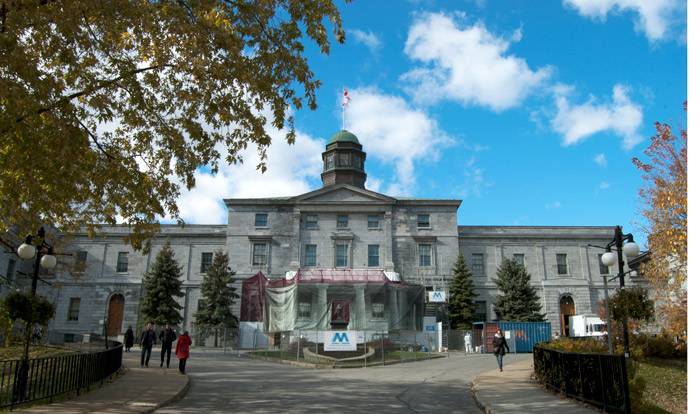McGill’s U0 Arts curriculum is failing its students. The Arts Freshman Program’s purpose is to encourage academic diversification, and provide students with a basis of knowledge in the liberal arts. It requires first years to fulfill broad credit requirements across three of four streams—social sciences, humanities, languages, and mathematics and sciences. Ideally, first-year McGill students would see the value of a varied and challenging education and choose their courses accordingly. If this were the case, the current system would be a sufficient framework; however, leaving the burden on students to develop a challenging and well-rounded U0 curriculum is ultimately wishful thinking. McGill’s freshman program has the right idea in spirit, but not in execution. The university needs to radically reorganize the Freshman Program in order to realize its intended value.
The program’s current form allows students to largely subvert its aims. Many courses, like English and French, overlap as two categories (language and humanities), allowing students to avoid one layer of diversification. Instead of pursuing challenging and widely applicable subjects, students often take whatever courses seem easiest in a category, particularly within the categories that they are less academically interested in. Fringe courses, like The Art of Listening, Natural Disasters, and Chemistry of Drugs end up packed with apathetic students, enrolled purely to meet program stipulations, or trying to get an easy A. Such courses may be valuable in and of themselves, but are often insufficient to serve as a basis of knowledge in that field.
Students’ disregard for the value of academic diversification, and inclinations to specialize prematurely are understandable. Undergraduate degrees, especially in the arts, are an increasingly large and uncertain investment. As such, aggressive specialization—especially in majors that are seen as employable—and a subsequent disregard for exploring a diversity of subjects seems like a logical solution. Expertise is marketable, and it’s often tempting to simply take the easiest route to gain proof (a diploma) of such specialized knowledge.
While specialization is necessary in academics, it should be preceded by comprehensive overview of subjects for two major reasons. First, taking a breadth of courses allows students to consider multiple fields that they may not have previously been exposed to. More importantly, it also forms a necessary basis of cultural and intellectual context from which to view and critically examine a narrower academic field. In a field of study as interconnected as the liberal arts, a system funnelled toward specialization limits the possibilities of valuable cross-subject conjecture.
Philosophy, for example, cannot be divorced from any subject in the Arts. Be it art history, political science, gender studies, or linguistics, a basic education in philosophy immediately expands a subject’s potential breadth. A student of 17th-century literature, for example, is at a loss if they are completely ignorant of the era’s popular political theory, just as their study of Wagner is lacking without consideration of Nietzsche. The liberal arts are ultimately cultural phenomena, and lose potency when perfectly siloed.
Examples of comprehensive general programs do exist. Columbia University’s Core Curriculum claims “to provide all students [regardless of major] with wide-ranging perspectives on significant ideas and achievements in literature, philosophy, history, music, art, and science.” The freshman program’s mandatory courses include a survey of moral and political thought since Plato and an introduction of Western literature. In Canada, the Foundation Year at King’s College in Halifax incorporates a mandatory and intensive seminal reading list comprising its entire first-year curriculum. While McGill may not need to go as far as to adopt a uniform curriculum like King’s, the university should be more prescriptive in its role to ensure a foundational freshman education.
McGill cannot assume that students will independently choose a diverse range of courses, rather than the easiest option to fill a quota. Instead, the school should make certain courses mandatory in each of the already specified streams, for example an introductory philosophy course in the humanities. Education should be an end unto itself, and McGill’s Freshman Program should emphasize this principle. That means overcoming the reduction of university education into a simple transaction of money and time for a diploma. McGill needs to re-evaluate its U0 Arts program, and build it as an introduction to new ideas and fields of study, rather than just a hurdle to U1.







